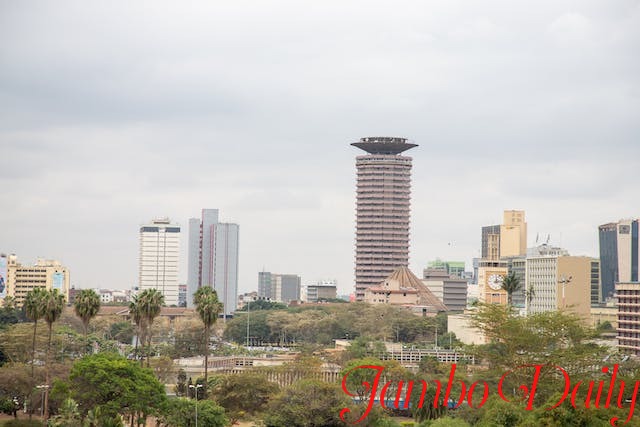
KICC and 10 other State Corporations Listed for Privatization
The Kenyan government intends to sell Sh2.3 billion KICC and 10 other enterprises, which include both profit-making and loss-making organizations, under the proposed privatization initiative.
On November 23, President William Ruto announced plans to privatize 35 state-owned enterprises in an effort to restart the country’s economy. The statement was made by President Ruto during the opening ceremony of the African Stock Exchanges Association’s annual meeting in Nairobi.
National Treasury Cabinet Secretary Njuguna Ndung’u introduced the 2023 Privatization Programme on Monday, November 27, outlining the first tranche of 11 state-owned enterprises that will be privatized.
The move follows the passage of the Privatization Act 2023, which aims to streamline the privatization process and reduce bureaucracy.
Kenyans have till December 11 to express their thoughts on the privatization initiative.
Privatization aims to address issues with state-owned firms, such as insufficient money, restricted knowledge, obsolete technology, and the dual mandate of regulatory and commercial roles.
The following companies have been submitted for the Privatization Program:
1. Kenyatta International Convention Centre (KICC)
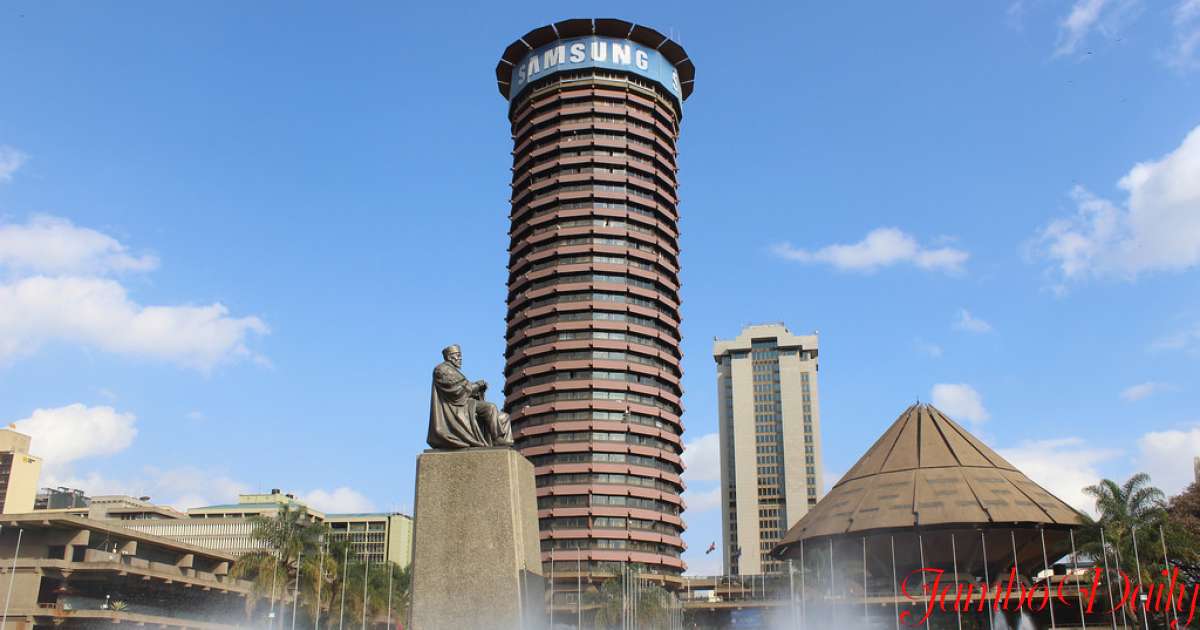
KICC is a government-owned corporation founded under the Tourism Act of 2011 to promote the Meetings, Incentive Travel, Conferences, and Exhibitions industry.
Despite its excellent financial and operational performance over the years, KICC receives government funding for ongoing operations.
KICC’s acting Chief Executive Officer (CEO), Ms. Patricia Ondeng, stated before the National Assembly Public Investments Committee on Commercial Affairs & Energy in October that the corporation’s stated value of Sh2.3 billion in the fiscal year 2019/2020 only related to the block where the KICC tower is located. She further clarified that the area surrounding the building is not included in the stated value because it is unallocated Government land.
Justification for and Advantages of Privatizing KICC
KICC operates in a mature and competitive market, with other private sector businesses providing comparable services both locally and regionally.
The privatization of KICC, according to the Treasury, will create greater cash for the government while decreasing the necessity for exchequer support.
2. KLB (Kenya Literature Bureau)
KLB is a government-owned corporation formed by the Kenya Literature Bureau Act of Parliament Cap 209 of 1980.
KLB’s primary activity is the publication, printing, and distribution of high-quality literary, educational, cultural, and scientific publications and resources.
In fiscal year 2021/2022, KLB had sales of Sh2.676 billion, a net profit of Sh85 million, and dividends of Sh8 million.
Justification and Advantages of Privatizing KLB
KLB works in a mature industry that is served by a number of private enterprises. The privatization of KLB will provide the government with additional revenue.
3. National Oil Corporation of Kenya (NOCK)
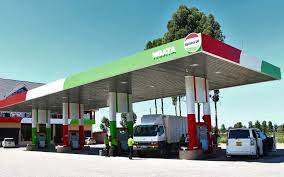
NOCK is a government-owned corporation with a dual mandate of oil and gas upstream (exploration of probable oil resources) and downstream (importation, distribution, and retailing of refined white oil products).
NOCK was designed to play a key role in price stabilization and the provision of adequate stock of refined white oil products (oil reserves), which it has not done due to capacity constraints.
NOCK is reliant on public subsidies for capital projects, according to the Treasury, but has been earning profits. Poor financial performance, including massive losses, negative working capital, and inadequate liquidity
Kenya Pipeline Company Limited (KPC) is a Kenyan pipeline company.
Read also, Highest-Paying Parastatals in Kenya and Salary Scales
The government owns 100% of KPC, a limited liability business. It was founded in 1973 under the Companies Act with the mission of delivering, storing, and distributing petroleum products. Because KPC has a monopoly on gas and refined white oil product pipeline transportation, the National Treasury recognized the necessity for a robust regulator.
KPC is a reliable and profitable corporation, and its financial and operational performance has been excellent over the years.
Justification for and Advantages of Privatizing KPC
Treasury anticipates that privatizing KPC will increase private sector engagement in the business, enhancing efficiency and competition.
It is also projected to attract private sector funding and expertise, as well as provide an excellent opportunity for the expansion of oil and gas pipeline infrastructure to unserved areas.
5. Rivatex East Africa Limited (REAL)
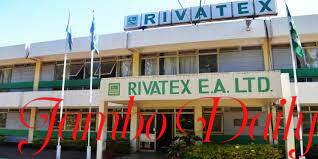
Rivatex East Africa is a limited liability corporation founded on August 16, 2007, that is completely owned by the government via Moi University.
REAL’s primary mission is textile manufacturing, training, research, and extension.
On July 31, 2023, members of the Parliamentary Committee on Trade, Industry, and Cooperatives led by Chairman James Gakuya will tour Rivatex in Eldoret.
REAL is reliant on national government financing for plant restoration and modernization, as well as working capital. REAL’s financial and operational performance, on the other hand, has been terrible, with losses over the years.
6. Vehicle Manufacturers Limited (KVM)
KVM was incorporated as Leyland Kenya Limited in 1974 but changed its name in 1989 to Kenya Vehicle Manufacturers.
KVM was originally designed to produce light and heavy commercial vehicle bodies but later diversified to buses and trucks.
KVM is currently a loss-making company in an industry that is mature and sufficiently competitive. The privatization of KVM is envisaged to attract private sector capital for optimization of the company operations in body vehicle assembly and bodybuilding.
Treasury also foresees that private investors will put into use an idle production facility to create value and employment.
7. New Kenya Cooperative Creameries Limited (NKCC)
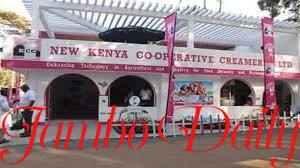
The government owns 100% of NKCC, which was founded in 2004 under the Companies Act.
The new KCC was formed to play strategic responsibilities such as off-taker of raw milk from dairy farmers for value addition, price stabilization at both the farm gate and retail point during milk glut, and strategic milk reserves and strategic food reservoir.
The private sector actively participates in the dairy business, both in milk processing and in the importing of milk products, therefore New KCC operates in a competitive environment. New KCC’s financial and operational performance has been poor, but it is asset-rich, with property in strategic and attractive regions around the country that has yet to reach its full potential.
8. WKRM (Western Kenya Rice Mills Ltd)
WKRM was established in 1993 and is 60% held by the National Irrigation Authority (NIA) and 40% controlled by Western Kenya schemes Rice Farmers.
Its primary activity is the processing and marketing of milled white rice, primarily from schemes in Western Kenya. WKRM’s financial and operational performance has been relatively bad, with losses accruing over time.
9. Mwea Rice Mills Limited (MRM)
MRM is a limited liability business that is a subsidiary of the National Irrigation Authority (NIA).
MRM is owned by the NIA (55%), Mwea rice farmers (45%), and Mwea Rice Growers Multipurpose Co-operative Society Limited.
MRM was founded in 1967 to serve as the principal rice mill at Mwea Irrigation Scheme, with its primary functions being rice storage, milling, and selling.
Privatization of MRM is expected to widen the economy’s base of ownership by supporting private ownership of enterprises, particularly farmer cooperatives.
10. Kenya Seed Company Limited (KSC) ten.
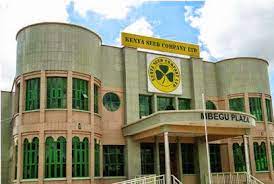
Kenya Seed Company is a state firm because the Agricultural Development Firm (ADC) owns 52.88% of the company. ADC is a government corporation.
KSC was founded in 1956 as a limited liability company in Kenya with the mission of manufacturing and marketing high-quality certified seeds.
KSC was founded in 1956 as a limited liability company in Kenya with the mission of manufacturing and marketing high-quality certified seeds.
KSC’s subsidiaries in East Africa include Simlaw Seeds Kenya, Kibo Seed Tanzania, Simlaw Seeds Uganda, and Kenya Seed Rwanda.
Over the years, KSC’s financial and operational performance has been strong.
11. Numerical Machining Complex Limited- NMC
NMC is a state corporation since Kenya Railways Corporations (KRC) owns 51% and Kenya Shipyards Limited (KSL) owns 49%. KRC and KSL are both government-owned state businesses. NMC was founded in 1994 under the Companies Act with the mission of commercializing steel parts, engineering design, and manufacturing machines and components.
Due to a shortage of resources for capital projects and working capital, NMC’s operational and financial performance has been weak.
